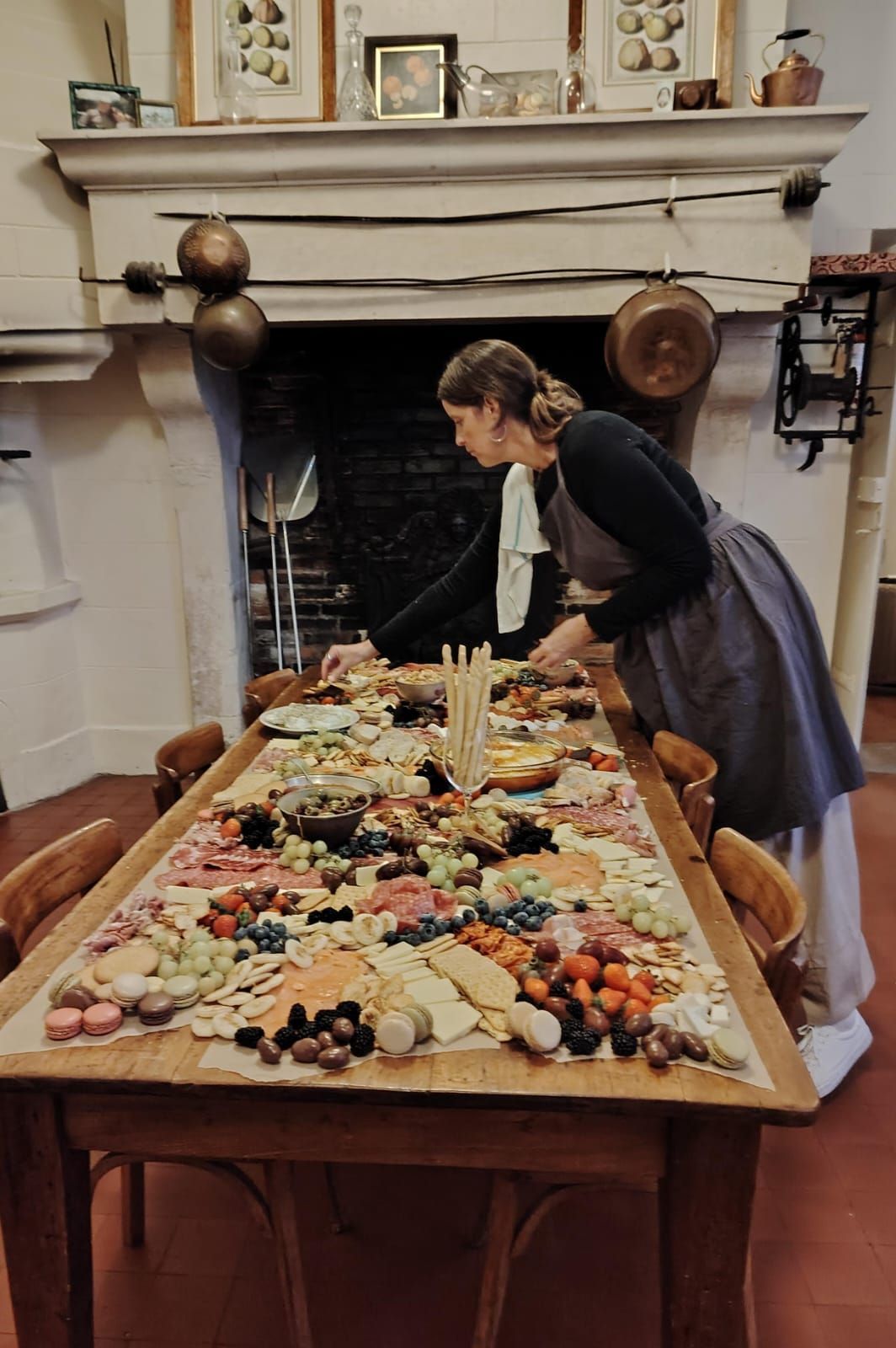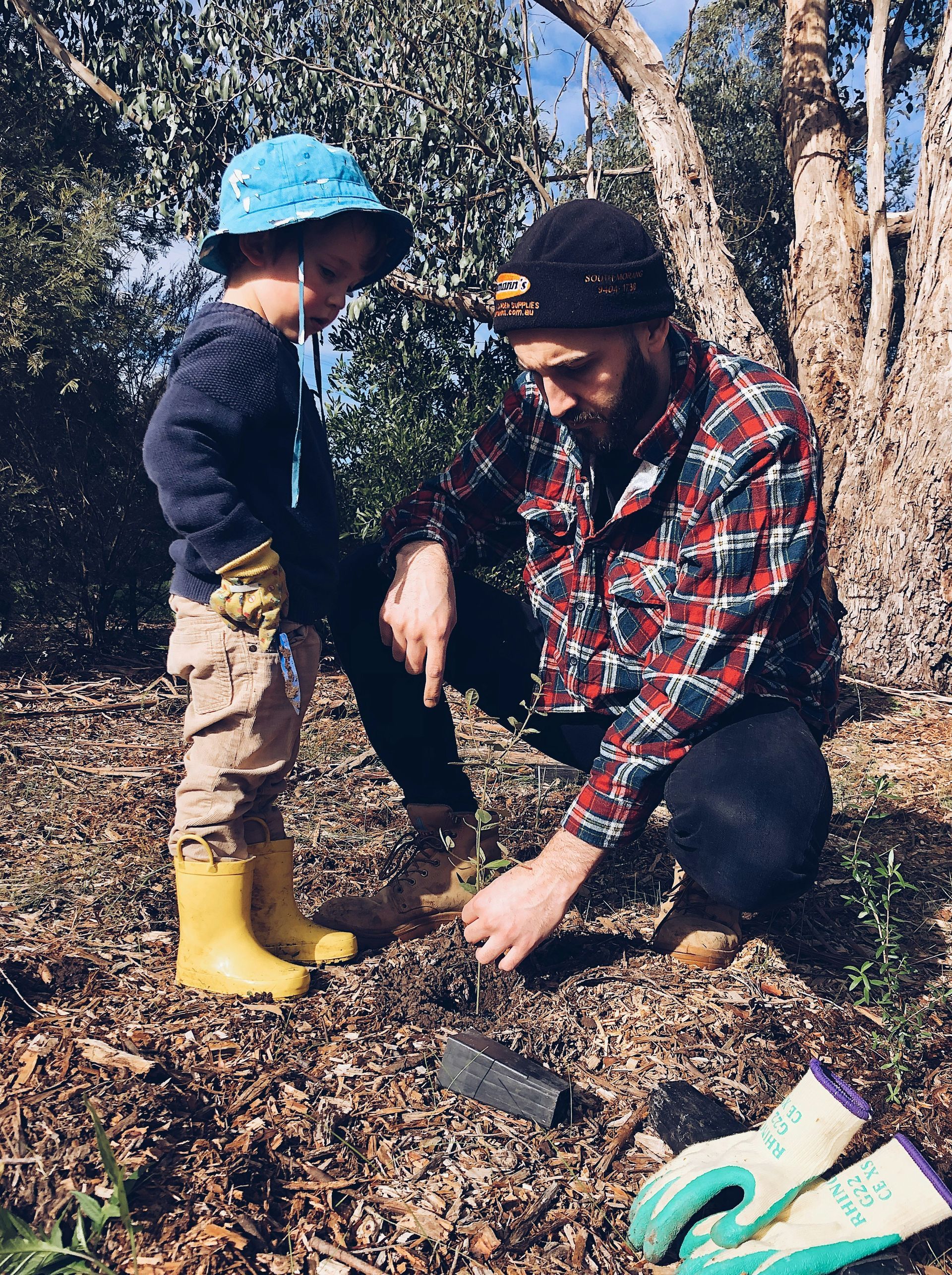Registration Closes In:
:
:
:
Days
Hours
Minutes
Seconds
Countdown finished!
LATEST BLOGS
Latest Blogs


CURRENT BlogS

By Brooke Waters
•
February 21, 2025
Raise your hand if you’ve struggled to start a new endeavour. Me. My hand is raised. And I know that I can’t be the only one here. We have dozens of new, creative ideas everyday. Maybe it’s a cooking class, an art class or a pottery class you’ve wanted to take. Maybe it’s a new business idea you’ve wanted to start. Or maybe you’ve really wanted to paint a wall a surprising new color in your home. Maybe it’s a book you’ve thought of writing, or even a short story, but then you talk yourself out of it because of a million different reasons, not the least of which is who would ever want to publish it let alone read it. We are so good at coming up with reasons to not try something new, reasons to not take a risk. We often dismiss creative ideas. I read this quote the other day that got me thinking: Sometimes done is better than perfect. Am I waiting for things to be perfect before I even start? Dang it. There’s perfectionism rearing its ugly head again. It’s not all or nothing. All or nothing thinking sets us up for failure because it sets unrealistic standards. An all or nothing mindset says I should be able to do this or that. And should is where subtle shame hides. Perfectionism robs creativity — and it really robs our joy, too. Solutions that you need and that others need, are waiting in creativity. So what if instead of partnering with perfectionism, or all or nothing thinking, we started with little bits of better. What if, instead of chasing big, unsustainable changes, we embraced little bits of better — small, manageable steps that build real momentum? Here’s an example of what that might look like. I’m working on some health goals right now, which honestly seem quite big. Instead of using shame as motivation, I celebrate every win — because little bits of better add up. One glass of water, one short walk, one small victory at a time. What if we start before it’s polished and perfect. I know that sentence made some of your stomachs turn. It’s ok. What’s the worst that could happen? Sure, you might fail. But then what? Fill in the answer to that question. Sometimes we’re just so afraid to start before it’s perfect we don’t pause to ask ourselves a few more questions. If the answer to what’s the worst that could happen is I might look foolish, or no one might read my book or blog or short story or the paint I pick for my living room might look terrible, then I encourage you to stop listening to the critical voice of perfectionism. Shame whispers doubt but love reminds you to begin. Listen to what love says about you! What’s something you’ve wanted to try but have been holding back on? What’s one little bit of better you can start today?

By Brooke Waters
•
December 13, 2024
How do you see the world? Seems like a big question. But honestly, it’s the best question. How are you viewing the world, what lens are you looking through? Because that shapes everything else. If we’re looking at the world through a lens of “I don’t have enough” or “I don’t have enough of the stuff I want”, things start to go downhill pretty quickly. It becomes an all-consuming view of jealousy, bitterness and lack, which ultimately can lead to the pit of despair. We can become angry with our friend or coworker or spouse for the good things they have and can only see all the things we don’t have. Which makes sense because we live in a microwave society. We like things fast. We complain when the Chick-fil-A line is too slow, we’re grumpy when we can’t immediately access an app on our phone and we get downright angry when the checkout lane at our local grocery store is too long. We simply don’t have time for this, we think. All those feelings of lack and entitlement can lead to feeling down, the blues or simply depressed. Guess what? Gratitude is the antidote to depression. It’s even mentioned 157 times in the Bible. Seems important. In fact, Psalm 100:4-5 says: Enter his gates with thanksgiving And his courts with praise; Give thanks to him and praise his name. For the Lord is good and his love endures forever; His faithfulness continues through all generations. Wow, right?! We are to be moved with praise because of God’s goodness which is infinite and forever without end. God is happy and he’s in a good mood. In fact, he’s in a good mood about you. If I apply giving thanks at all times for everything, what does even that look like? I’m not saying to be grateful for a hard or hurtful situation, but grateful that I’m still here. I’m grateful that God is good and he’s in it with me. I’m grateful for freedom, for dreaming, for adventures. Grateful to see my kids growing and thriving. You get the idea. Our perspective also shifts when we start focusing on how to encourage and support others. Gratitude is a way we can see the world. American author John Ortenberg says gratitude involves recognizing three good things: Benefit. Recognize you’ve received something good. Benefactor. Recognize there’s someone behind every benefit. Beneficiary. Recognize that not all the benefits are earned. It really is a perspective shift. Shifting from seeing dirty dishes in the sink to gratitude for the food that was on it. Piles of dirty laundry? You’ve got clothes to wear. A job you hate? You’ve got money to pay the bills. You see where I’m going with this. You can see the world as not enough for you or you can see it through the lens of gratitude. The choice is yours. And it is a choice. If you haven’t joined us in daily writing 100 things you're grateful for, it’s not too late. Start today. We’ve even created a journal that can help you. Life is a gift. Let’s live like we believe that. Grab your Gratitude Journal here . In Grace, Liz

By Brooke Waters
•
December 1, 2024
The beeping, clanging of an alarm clock wakes you up. Frustrated, you roll over and flick it off. Slowly, your foggy brain starts humming to a laundry list of to-dos for the day. Or maybe it's replaying that stupid argument from last night. Or perhaps it's just the weight of silence and loneliness that comes crashing over you... again. "Ugh," is your first thought. (And let's be real - maybe a few choice words after that.) I bet any of those scenarios feel pretty familiar, right? How many hours until we can crawl back into bed? How many days until the weekend and we don't have to drag ourselves to that soul-sucking job? How long until this lonely holiday season is finally over? Here's the thing – our days often start with lack. Lack of joy, lack of peace, just plain old lack. And all of that lack? It leads straight down the path to depression, isolation, and that crushing loneliness that feels like it's sitting on your chest. What am I missing and how do I get it? There's even that Rolling Stones song that nails it – "I can't get no satisfaction." Here’s the deal: We’re so focused on what we don’t have that we’re not really living in the present. So if that’s the problem, what’s the solution? Gratitude. Gratitude is the feeling of thankfulness for what you have in life, and the practice of acknowledging the good things you’ve got. It can be applied to the past, present or future. Gratitude is a super hero level solution to depression, an antidote if you will. Through practicing gratitude, we start to realize that maybe – just maybe – life isn't totally terrible. That there might actually be some joy right here and now in the everyday stuff we usually ignore. And here's where it gets really good – God is the ultimate source of that joy. God's happy. He's in a good mood. And get this – He's in a good mood about YOU. Don’t believe me? Check out Psalm 100 in the Passion translation: “For the Lord is always good and ready to receive you. He’s so loving it will amaze you – so kind it will astound you! And he is famous for his faithfulness toward all. Everyone knows our God can be trusted, for he keeps his promises to every generation!” I mean... wow. That sounds like a God who is actually good, genuinely happy, and literally always excited to see you. Are you catching this? "He's so loving it will amaze you." Yes. Please. So how do we get there? Let’s start with something simple. Write 100 things each day you’re grateful for during the month of December. Yep, you heard me right. Do it every day. Not sure where to even begin? Start with simple things: I’m grateful that I’m warm and safe. I’m grateful that I’ve got a home, electricity and food. Let your list build from there. Drop a comment below with your starter list of five things. Starting our days looking for ALL the good stuff will change how we see everything else. It might feel challenging at first, uncomfortable even, but stick with it. Something beautiful will start to happen. We have a journal that is perfect for this journey-check out the Gratitude Journal here Much Love, Liz

By Brooke Waters
•
November 17, 2024
I don't know about you, but mine sometimes gets a little bit crispy around the edges – kinda like something that's been left in the oven a little too long. You know that feeling? When you're a bit short-tempered, running on empty, and your loving tank is hitting "E." Usually when I'm in this spiritual funk, it's because I've been doing all the things (maybe even good things!) but not the soul-filling things like resting, worshiping, or just sitting back and marveling at God's awesomeness. Here's something wild – even God took a breather. Genesis 2:2 tells us: "By the seventh day God had finished the work he had been doing; so on the seventh day he rested from all his work. Then God blessed the seventh day and made it holy, because on it he rested from all the work of creating that he had done." If the Creator of the universe needed a rest day, maybe we should take the hint? What Sabbath Isn't (My Confession) When I first dipped my toes into this whole Sabbath thing, I thought I was crushing it. My "rest day" looked like catching up on laundry, binge-watching shows, and tackling that ever-growing to-do list. John Mark Comer (in his book "The Ruthless Elimination of Hurry") lovingly calls this a "bastard sabbath." Ouch, but fair. Sure, errands and Netflix have their place, but true Sabbath? That's something entirely different. Finding Your Rest Rhythm Here's the beautiful flip: Sabbath isn't about working for rest – it's about living from rest. Everything we do flows from that peaceful place. Mind-blowing, right? But before you start googling "Top 10 Sabbath Rules," let's pump the brakes. The last thing we need is another spiritual checklist. Instead, try this: Ask yourself: What makes your soul come alive in God's presence? What would genuine rest and worship look like for you? How can you invite the Trinity into your day? Remember, this looks different for everyone. A mom with toddlers might have a totally different Sabbath than a college student or an empty nester – and that's perfectly okay! When your soul is rested, everything changes. I've noticed I have so much more love to give when I'm not running on spiritual fumes. It's like the difference between serving from an overflowing cup versus scraping the bottom of an empty one. Take a moment right now. Breathe deeply. Check in with your soul – how's it doing? If you're feeling spiritually crispy, consider it your soul's check engine light. Maybe it's time to embrace that holy pause God designed for us from the very beginning. No judgment here – just an invitation to rest in the rhythm of grace our beautiful God created for us. Because when we live from rest rather than for rest, that's when our souls truly come alive. Liz

By Brooke Waters
•
November 11, 2024
Rest. It’s practically a curse word. In our culture that is obsessed with fast, getting the most and never sleeping til your dead, rest is fighting words. There just simply isn’t room for it. Often we hear conversations that start with a typical “how are you doing” often are responded to with “I’m so busy.” Busy has become a badge of honor. It’s often used, as least when I’ve done it, as a way to communicate importance or value. I’m really important, I’m so busy, is what I was really saying. But what happens is we end up in a chronic state of restlessness. Tired. Hurried. Busy. Overloaded. What’s the antidote? A perspective change. Operating from a place of rest. Letting go of people pleasing, hurry, chronic exhaustion. The perspective change means letting go of control, and then shifting our perspective. Shift it from chasing some elusive I’ll rest when I finish x, y or z to living out of a place of rest in union with Jesus. Rest is counter cultural. Jesus speaks directly to this in Matthew 11:28. Here’s what how the Passion translation puts it: “Are you weary carrying a heavy burden? Then come to me. I will refresh your life, for I am your oasis. Simply join your life with mine. Learn my ways and you’ll discover that I’m gentle, humble, easy to please. You will find refreshment and rest in me. For all that I require of you will be pleasant and easy to bear.” Those words are so beautiful and simple. He will refresh my life, He’s an oasis and He’s easy to please. Amazing. So how do we actually rest? Good question. A really great place to start is with something very central to restfulness: Sitting with God. Do you know how to just sit with him? That may sound like a difficult task, but actually it can be quite simple. A really tangible way to practice this is by the very act of breathing. Breathing itself is an act of worship. In fact, God’s name Yaweh is actually broken down to Ya, meaning to inhale, and Weh, meaning to exhale. So everytime you breathe it’s really a form of worship. Let’s take a minute together and worship God with the practice of box breathing. It’s simply breathing in to the count of four, holding your breath to the count of four, exhaling to the count of four and holding no breath in your lungs to the count of four. Let’s try it. First, get comfortable. Next, take a sip of water and close your eyes. Now let’s spend a minute or two just breathing. As you breathe, imagine yourself inhaling God’s love and exhaling any toxic thoughts. How do you feel? Pay attention to what you’re feeling in your body as well as your mind or heart. Take a minute to journal about anything you sensed or felt while you were breathing. There are no right or wrong answers here. It’s simply information about what’s going on inside of you. And then ask God, what do you want me to know about this? Write whatever comes to mind . Liz

By Path to Wholeness
•
February 19, 2024
I used to think hearing God’s voice was hard. Hearing God required intense focus and concentration. Obviously, there was a list of things I needed to do in order to hear the Father: A minimum of an hour of daily quiet time, worship, prayer, Bible reading and possibly fasting. And then after you did all those things you waited, hoping to hear something. It could take days, it could take weeks. There was no real way to know for sure. It was always mysterious how long it would take to hear God’s voice. And then came the next inevitable question: How do I know God’s voice from my own thoughts? What if I’m just making up what I want the answer to be? But then if I dug a little bit deeper the real question lingered: Does God still speak to people today? And if He does, does He want to speak to me? Ouch. That is the real heart of the issue, at least it was for me. How did that change to where I could hear from God? I heard something radical: When you ask the God of the universe a question He answers it. Right away. Wait a second, is that really true? You mean I don’t have a long list of things I have to do in order to hear from God? Nope, there’s no long list, no formula you have to do in order to hear God’s voice. So then it came time to put into practice what I’d learned. I was in the middle of a storm and wasn’t sure God was in the storm with me. If He was in the storm, I couldn’t see or hear him. In the darkness I cried and prayed. My real question was God are you in this with me? And if you are, can you speak to me even in the middle of this mess? The amazing thing is God started speaking to me. It wasn’t an audible voice, it sounded like my own thoughts. Connecting and communicating with God, Jesus or Holy Spirit can seem unattainable sometimes. Our hope is to demystify what that communication looks like and help you reconnect to the trinity. It’s actually a pretty simple process. If you’re stuck trying to hear God, have hope. We are believing these posts will help unstuck you. Over the coming weeks, we’ll talk more in depth about how to discern God’s voice. We hope you’ll join us.

By Path to Wholeness
•
February 18, 2024
I remember looking in the mirror and thinking silently: You’re repulsive. As I looked, I heard myself say those damaging words again and again. I would frequently stop and catch my own internal dialogue. And it wasn’t pretty. Have you been there before? When I stopped to pay attention to what my own internal dialogue was, I was thrown aback … what on earth? Where did I ever hear that? No one ever spoke those words to me. No one ever spoke my internal thoughts out loud. So where did it come from? This was in a season of my life where I lived in shame and condemnation. I knew that wasn’t God’s voice, even though I wasn’t following him at the time, but then whose voice was it? I have come to understand our thoughts will do one of two things: Either push us towards God or away from him. Those self-hating words were not pushing me towards the love of a good Father. If anything, it was an attempt to separate and isolate me from God. And just to be clear, God never separates from us. Ever. We try to hide from him. Spoiler alert: It doesn’t work. He finds us. He’s just that good. God’s voice pulls us close and gives us life and encouragement! Father God speaks life over you and encourages you. His words leave you feeling uplifted and full of life. If you walk away from Him feeling defeated and burdened, I encourage you to ask Him, Is that your voice?

By Path to Wholeness
•
February 17, 2024
Standing at the kitchen sink, I began having thoughts about my friend whom I haven’t even seen today, as it is only 8:30 a.m. I think, “Man, she really pissed me off yesterday!” Then of course my next thought is,“You’re right, she did!” This internal exchange continues in my thoughts and by the time I am done doing the dishes, I am angry at my friend, someone I haven’t even spoken with this morning. Now, I wonder. Who did I agree with in my thoughts? Myself? God? Something else? Well, it wouldn’t make sense to agree with myself. And God wouldn’t accuse my friend of being crappy. God‘s voice is encouraging and life-giving! When he speaks to us individually, or as a group, we are left, feeling hopeful, lighter and full of energy. The negative thoughts I had about my friend were none of those amazing qualities. I felt heavy, burdened, angry and defeated. The Father’s voice is going to be really specific to you. How he speaks me will not be the same as how he speaks to you. More on that topic soon.

By Path to Wholeness
•
February 16, 2024
Have you ever wondered if you can hear God’s voice? And if you can, what in the world does it sound like? I’m raising my own hand while typing these words. I used to wonder when I prayed, if it was God’s voice talking back to me. It didn't sound as reverent as I had thought it would. I mean, God wasn’t speaking with a King James Version accent. One day I realized when God talks to me it sounds like my own thoughts. But still the idea persisted: How do I know the difference between my thoughts and God’s voice. Here’s a big clue: He talks to you in a way that’s meaningful and specific to you. Are you a joker or a real smart Aleck? Or are you an intense feeler or story teller? Whatever your own personal communication style, that’s most likely how Father God will talk to you. He made you, designed you from scratch and gave you an identity (more about that in another blog) of course He will speak to you in a way that’s meaningful to you. He’s just that good.

By Path to Wholeness
•
February 15, 2024
I was sitting cross legged on the sofa with my eyes closed, and my friend who was praying with me told me to ask Father God what he thinks about me. I did and then sat silently waiting. I started to cry because what I heard wasn’t encouraging. In fact, it was the opposite. Why would God say I was a mess up or failure? That didn’t seem right. Those thoughts definitely didn’t push me toward Father God and it definitely wasn’t life giving. Instead, it made me want to run and hide. It was my worst fear about myself on display. Do you wanna know a simple solution? I learned a really important question: Father God is that your voice? We can actually just ask him this direct question, and he will answer. So I said those words and waited to see what God would say. Turns out, those negative words I heard weren’t actually God’s voice. When I talk to God and He answers I often follow up with the question: God is that your voice? God isn’t trying to trick us or hide from us. He genuinely wants to connect with us. He wants us to know his voice. And he’s definitely not angry or thrown off by our questions. In fact, I think he welcomes it.
